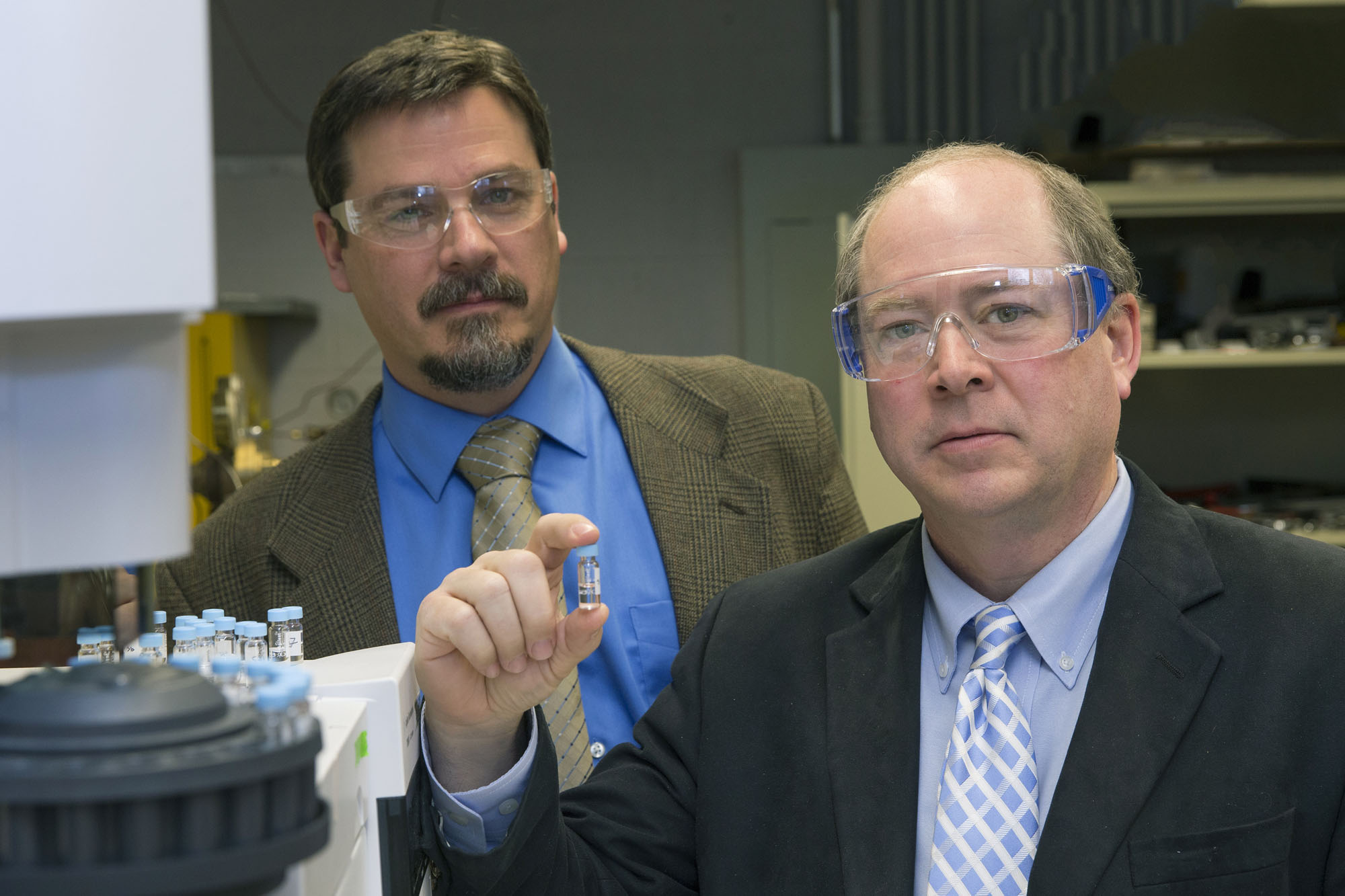The University of Virginia has formed a partnership with MAXNET Energy, a new initiative of Germany’s Max Planck Society to advance research on new, renewable, environmentally friendly and economical energy sources.
MAXNET Energy comprises seven Max Planck institutes, plus U.Va. and Cardiff University in Wales – the only external members. Membership is by invitation only from the Max Planck Society, and U.Va. is the only U.S. member.
Within the consortium, researchers from U.Va. and the Max Planck Institute for Chemical Energy Conversion will work collaboratively on developing processes for the clean and efficient production of energy as well as improved energy storage and distribution systems.
“There is no single technological factor that influences societies more than energy, and access to affordable clean energy from renewable resources is among the world’s most pressing challenges,” said U.Va. chemistry professor T. Brent Gunnoe, who directs U.Va.’s side of the partnership. “This collaboration is tailor-made to seek viable solutions to complex energy problems.”
Research efforts will focus broadly on new methods to use solar energy to produce fuels, new materials for energy storage and new catalyst technologies for the clean conversion of natural gas – including renewable bio-gas– to liquid fuels for the transportation sector.
U.Va. and the Max Plank Society have each committed $2 million to jump-start the research efforts for a planned initial five-year period of collaboration. Eight U.Va. research groups from four departments – chemistry, chemical engineering, mechanical and aerospace engineering and materials science and engineering – will participate in the new consortium. Chemical engineering Professor Robert Davis is working with Gunnoe, serving as the co-director.
Three collaborative seed research projects are being initiated: one focused on new materials for photocatalytic and/or electrocatalytic production of fuels from water, which can be driven by energy derived from the sun; a project to develop new and inexpensive processes for distributed conversion of natural gas to liquid fuel; and the implementation of a new technology for heat management in catalytic processes for the production of fuels.
All three of the projects are based upon key developments from research groups at U.Va. The new collaboration will enhance and augment progress on the research by adding the expertise of more than 200 scientists and technical staff and the use of advanced instrumentation at the Max Planck Institute for Chemical Energy Conversion.
“The chance to work with some of the world’s leading scientists also is a tremendous educational opportunity for the undergraduate and graduate students working on these projects,” Gunnoe said.
The Max Planck Society supports 82 institutes spanning the social, medical and scientific spectrum, conducting fundamental grand-challenge research activities of vital societal importance. Its scientists have earned 32 Nobel Prizes. The (London) Times Higher Education supplement has ranked the Max Planck Society as the world’s foremost non-academic research institution.
The Max Planck Institute for Chemical Energy Conversion, established in 2012 and directed by Professor Robert Schlogl, is one of the society’s newest institutes. It was formed to accelerate the pace of new technology development for clean and renewable energy.
“The honor of U.Va. having been selected to become the only U.S. member of MAXNET speaks volumes as to the utmost quality of our faculty throughout their distinguished research careers as applied to the challenge of developing new, more environmental and climate-sensitive processes for energy sources,” said Phil Parrish, U.Va.’s interim vice president for research, who helped negotiate the partnership.
He noted that Davis played a key role in developing the partnership based upon previous collaborative research with Schlogl.
“Dr. Schlogl has indicated that U.Va. was selected as the U.S. MAXNET Energy partner over several other top U.S. research institutions based upon the outstanding quality and importance of research by our faculty in the College and Graduate School of Arts & Sciences and the School of Engineering and Applied Science,” Parrish said. “The knowledge and experience that U.Va.’s faculty will provide complements the capabilities of Max Planck’s researchers.”
The partnership will allow researchers to jointly seek external funding from U.S. and European sources within the next two to three years as projects develop, Parrish said. He expects eventual external funding to reach at least $5 million per year for new projects, significantly increasing opportunities for discovery and creation of new intellectual property, and benefits to society.
“An important outcome of this partnership will also be an enhanced ability for the University to attract top faculty and students into these highly innovative energy science fields,” Parrish said.
Initial funding for U.Va.’s side of the partnership is being provided from the President’s Fund for Excellence, the Engineering School and the College.
Media Contact
Article Information
March 6, 2015
/content/exclusive-4-million-partnership-max-planck-society-targets-energy-research

